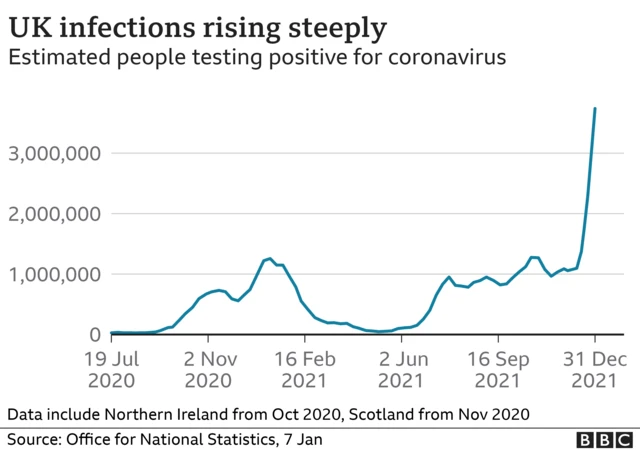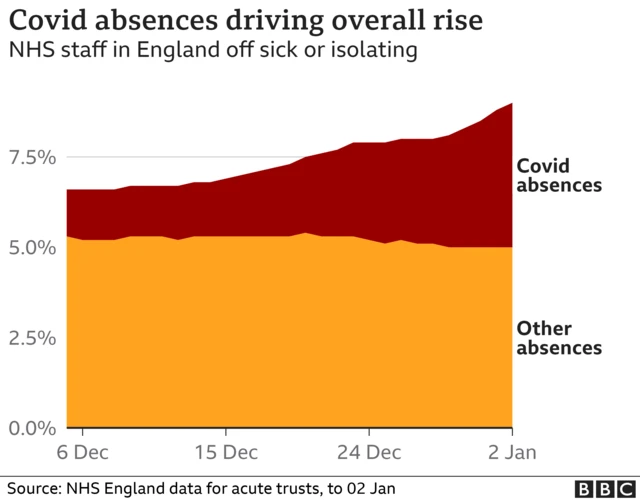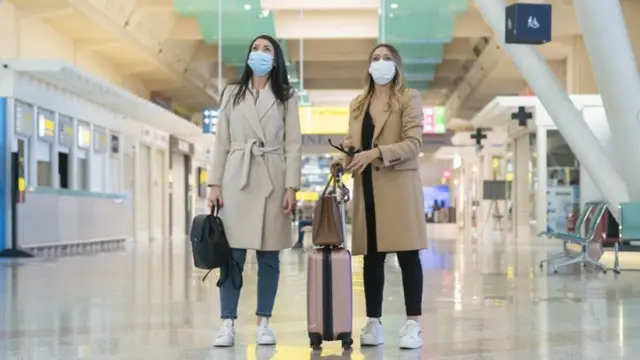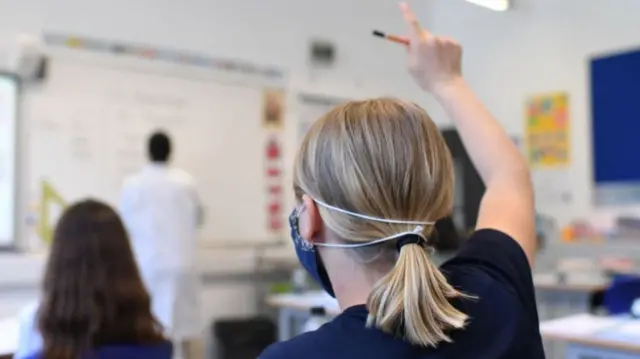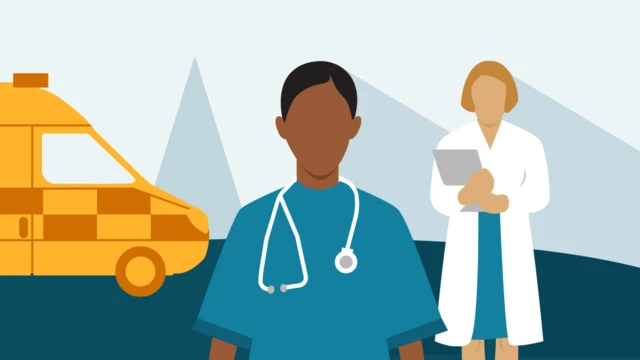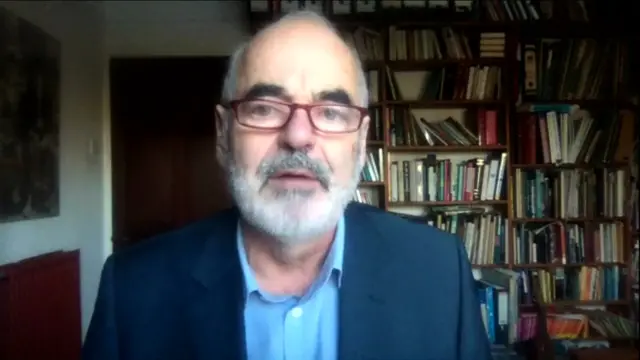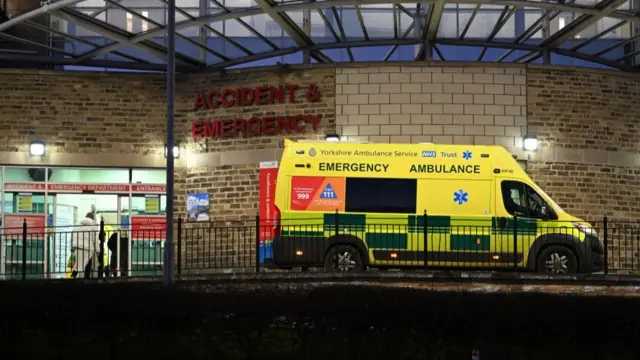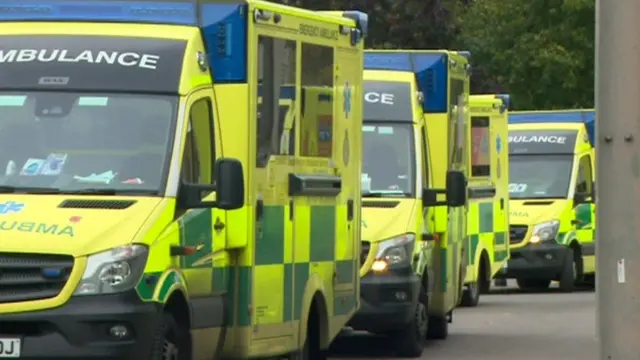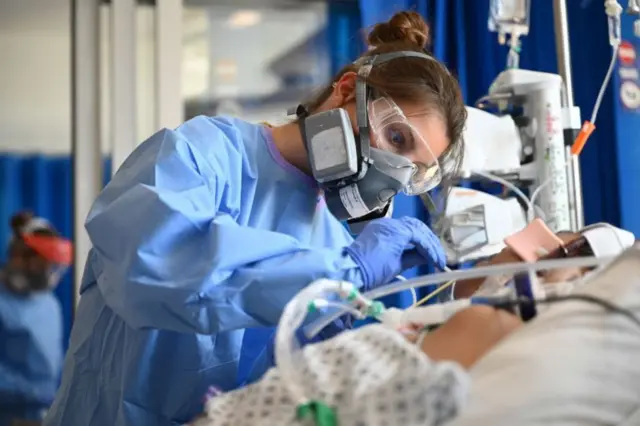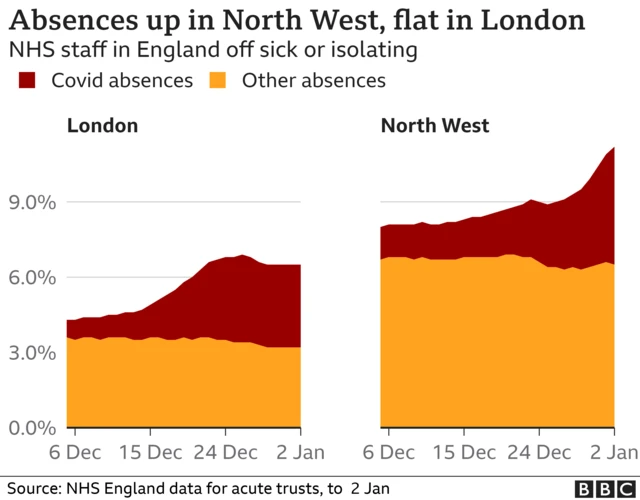Omicron wave expected to be short-lived in Wales - first ministerpublished at 12:44 GMT 7 January 2022
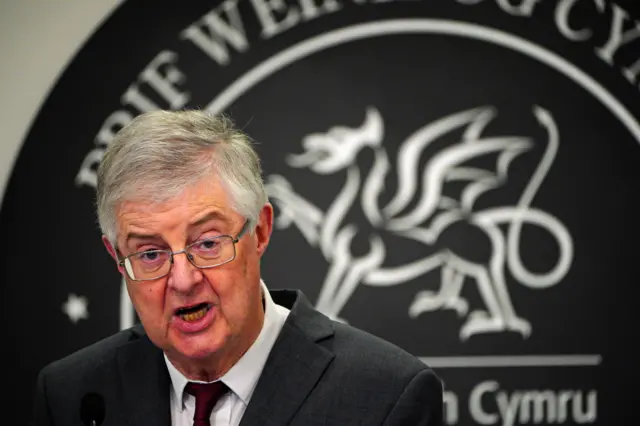 Image source, PA
Image source, PAMark Drakeford said the peak of the Omicron wave had not yet hit Wales and could be 10 to 14 days away
The wave of Omicron infections Wales is experiencing is expected to be short-lived, the country's first minister has said.
Speaking at a Welsh government press conference, Mark Drakeford says Omicron is now dominant in Wales and cases are rising "rapidly" every day.
The previous waves of infection - driven by other coronavirus variants - were "nothing compared to the size and speed of this Omicron wave", he says.
But Drakeford adds: "Unlike previous waves, which have lasted many months, we believe this one will be short-lived. "This is because of the speed Omicron is moving at."
The first minister says Wales has not reached the peak of this wave yet, which could be another 10 to 14 days away.
